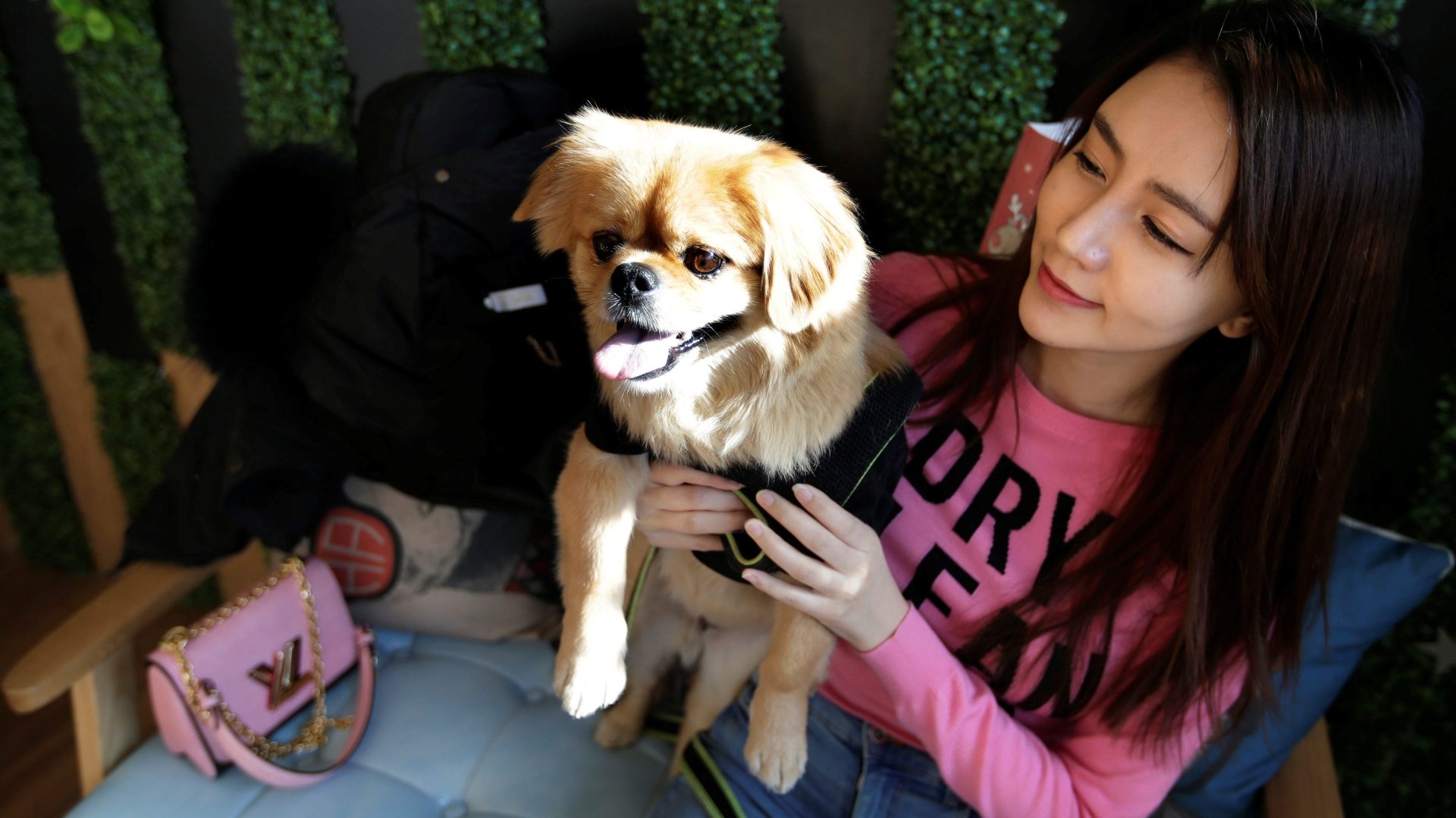China needs its population to have more kids. They’re adding pets instead.
Chinese authorities are urging citizens to become parents to stave off the country’s collapsing birth rate, upping the number of allowed children from two to three.


Chinese authorities are urging citizens to become parents to stave off the country’s collapsing birth rate, upping the number of allowed children from two to three.
The population is indeed embracing parenthood—but of pets, not kids.
Just like their western counterparts, China’s millennials are veering away from traditional markers of adulthood. Put off by unaffordable housing prices and the high cost of child care, many are choosing furbabies or maoxiaohai (毛小孩) instead.
From 2015 to 2020, China’s pet economy quadrupled in size, to just shy of 300 billion yuan ($47 billion dollars) from 72.5 billion, according to iResearch (pdf, link in Chinese). Over the next three years, the sector is expected to grow at a compound annual rate of 14%, hitting 445.6 billion yuan in 2023. In a telling example of China’s changing notions of parenthood, Nestlé China reported a drop in baby formula sales for the first nine months of 2021 citing lower birth rates. Business at its pet food division Purina, however, grew.
Who are China’s pet owners?
The pet explosion marks a big shift in how people perceive domestic animals in China. Not long ago, dogs were considered pests (in large part due to a 1980s rabies outbreak), and until April, they were classified as livestock by the government.
Pet owners tended to be older and lived in rural areas, but that has changed due to China’s growing middle class. A snapshot of current Chinese pet owners shows that most (88%) are women, according to consulting firm PwC. They are disproportionately single, well-educated, and they’re also young—half are from the post-90s generation.
China’s growing pet industry
In 2020, the average annual spend for a Chinese pet owner was 6,653 yuan, nearly 20% more than the previous year, data firm ITJUZI said (pdf, Chinese). While most of the pet spending goes toward food, Chinese consumers are also devoting more money towards toys and services like professional grooming.
The Chinese pets sector remains relatively resilient to covid-19, PwC noted. Most owners now see their pets as family or children and are unwilling to cut back on spending. And though costs are rising, owning a pet is affordable compared to the financial burden of raising a child.
In another sign of the times, Boqii (pdf), China’s largest pets platform, listed on the New York Stock Exchange in late 2020. The one-stop shop for pet parents counted 25.8 million users at the end of March last year, up by around 2 million from the prior year.
That being said, China is only in the early stages of embracing pet ownership. For now, education and awareness about animals is uneven. On the one hand, a restaurant that caters fine dining to cats and dogs opened in Shanghai last year; on the other, it was also only a year ago that China implemented a law mandating owners leash their dogs, which had previously been allowed to run loose in public spaces.
Chinese authorities have also been known to euthanize pets without their owners’ consent as a covid-19 containment measure, sparking a debate on what role pets play in modern Chinese society.